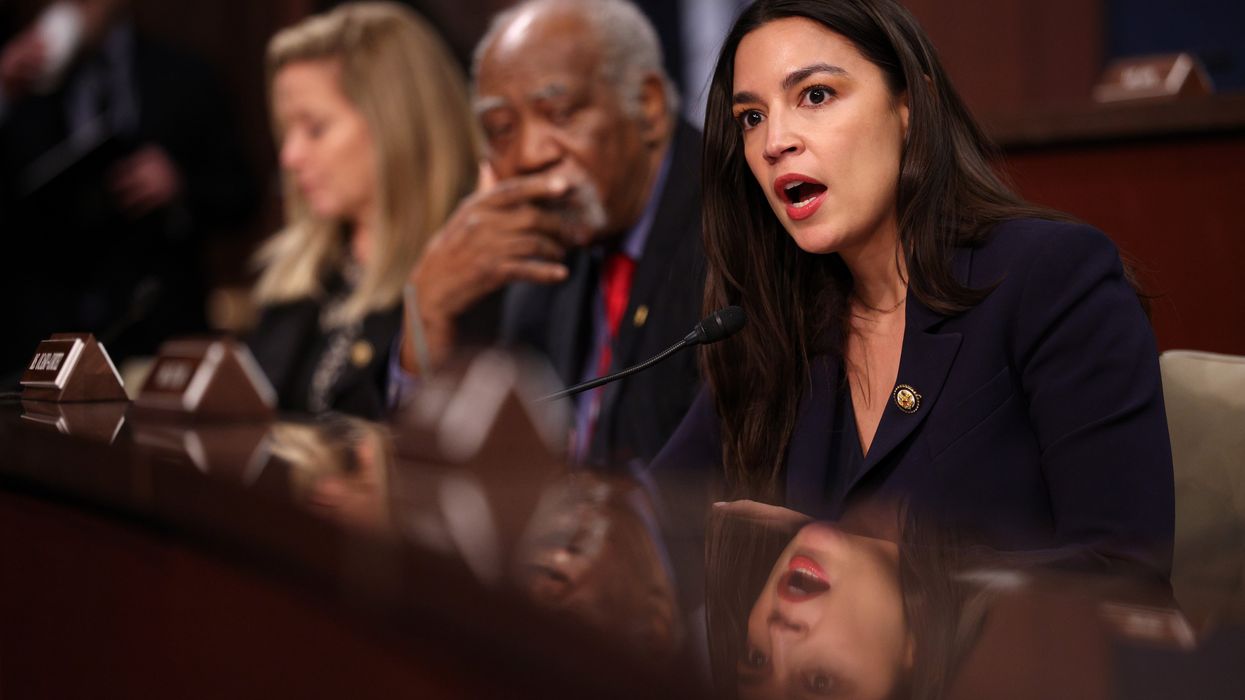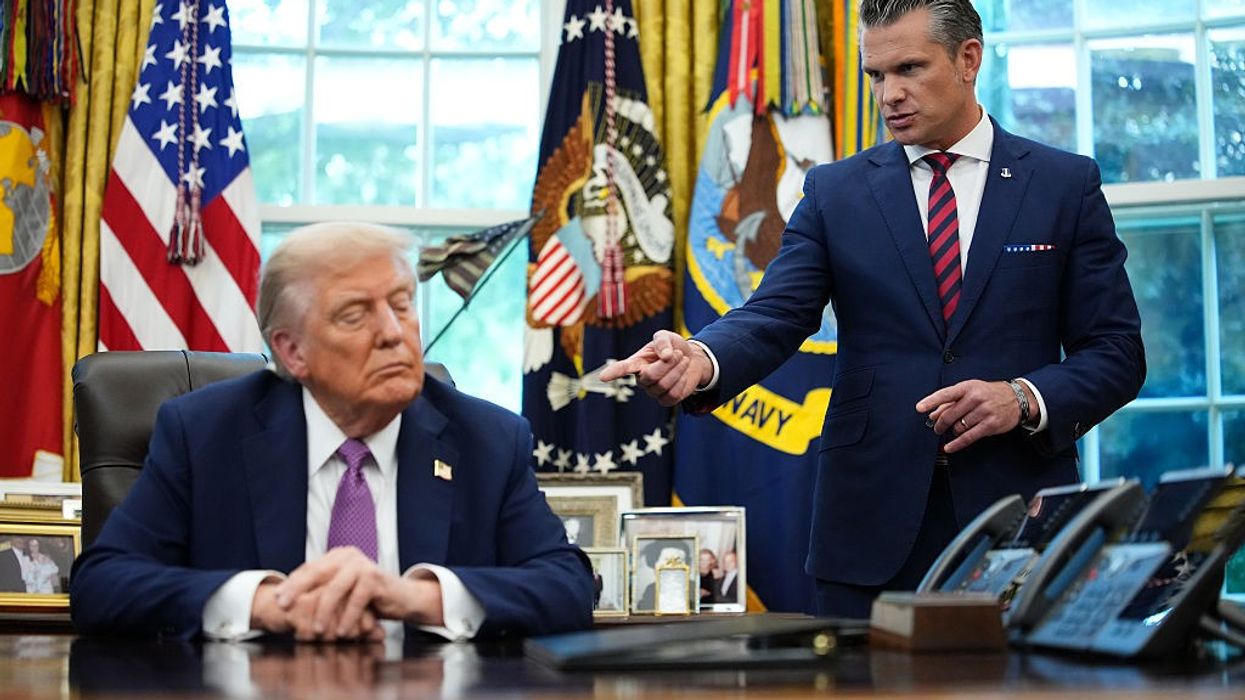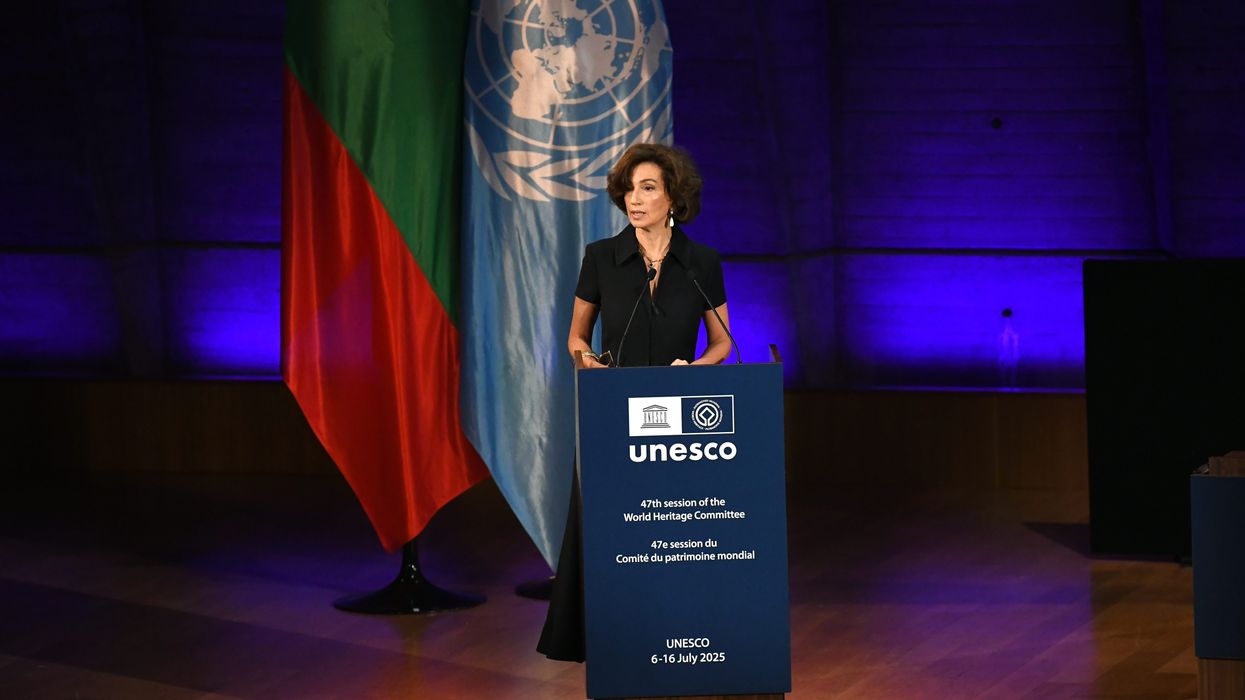As Hegseth Refuses to Release Video of Boat Murder, AOC Calls Briefing a 'Joke'
"Obviously, they have issues with what is in that video, and that’s why they don’t want everybody to see it," Sen. Mark Kelly said of administration officials after the meeting.
US Defense Secretary Pete Hegseth said Tuesday that the Pentagon will not release unedited video footage of a September airstrike that killed two men who survived an initial strike on a boat allegedly carrying drugs in the Caribbean Sea, a move that followed a briefing with congressional lawmakers described by one Democrat as an "exercise in futility" and by another as "a joke."
Hegseth said that members of the House and Senate Armed Services committees would be given a chance to view video of the September 2 "double-tap" strike, which experts said was illegal like all the other boat bombings. The secretary did not say whether all congressional lawmakers would be provided access to the footage.
“Of course we’re not going to release a top secret, full, unedited video of that to the general public,” Hegseth told reporters following a closed-door briefing during which he and Secretary of State Marco Rubio fielded questions from lawmakers.
As with a similar briefing earlier this month, Tuesday's meeting left some Democrat attendees with more questions than answers.
“The administration came to this briefing empty-handed,” Senate Minority Leader Chuck Schumer (D-NY) told reporters. “If they can’t be transparent on this, how can you trust their transparency on all the other issues swirling about in the Caribbean?”
That includes preparations for a possible attack on oil-rich Venezuela, which include the deployment of US warships and thousands of troops to the region and the authorization of covert action aimed at toppling the government of longtime Venezuelan President Nicolás Maduro.
Tuesday's briefing came as House lawmakers prepare to vote this week on a pair of war powers resolutions aimed at preventing President Donald Trump from waging war on Venezuela. A similar bipartisan resolution recently failed in the Senate.
Rep. Gregory Meeks (D-NY), the ranking member of the House Foreign Affairs Committee and co-author of one of the new war powers resolution, said in a statement: “Today’s briefing from Secretaries Rubio and Hegseth was an exercise in futility. It did nothing to address the serious legal, strategic, and moral concerns surrounding the administration’s unprecedented use of US military force in the Caribbean and Pacific."
"As of today, the administration has already carried out 25 such strikes over three months, extrajudicially killing 95 people," Meeks noted. "That this briefing to members of Congress only occurred more than three months since the strikes began—despite numerous requests for classified and public briefings—further proves these operations are unable to withstand scrutiny and lack a defensible legal rationale."
Briefing attendee Sen. Mark Kelly (D-Ariz.)—who is in the administration's crosshairs for reminding US troops that military rules and international law require them to disobey illegal orders—said of Trump officials, "Obviously, they have issues with what is in that video, and that’s why they don’t want everybody to see it."
Defending Hegseth's decision to not make the boat strike video public, Sen. Markwayne Mullin (R-Okla.) argued that “there’s a lot of members that’s gonna walk out there and that’s gonna leak classified information and there’s gonna be certain ones that you hold accountable."
Mullin singled out Rep. Ilhan Omar (D-Minn.), who, along with the Somalian American community at large, has been the target of mounting Islamophobic and racist abuse by Trump and his supporters.
“Not everybody can go through the same background checks that need to be cleared on this,” he said. “Do you think Omar needs all this information? I will say no.”
Rejecting GOP arguments against releasing the video, Sen. Adam Schiff (D-Calif.) said after attending Tuesday's briefing: “I found the legal explanations and the strategic explanations incoherent, but I think the American people should see this video. And all members of Congress should have that opportunity. I certainly want it for myself.”


